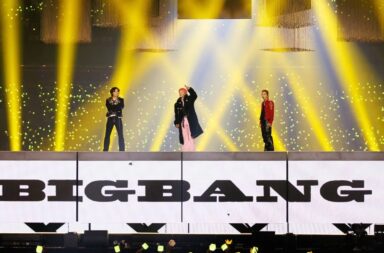It’s no secret that as of late, Korean entertainment companies have been setting their sites on the greater pool of fame and fortune laying a short plane ride away, in the island nation of Japan. Idol group after idol group has either debuted or been slated for a Japanese release. The dramas and the television programs follow. The reasons behind it are not difficult to see. Japan has a far larger music industry than Korea. Being a small fry in the Japanese industry will still rake in far more profit than being a small fry in the Korean industry. However, as of late, it’s becoming quite evident that not all Japanese are welcoming of the “Hallyu Wave”. Protests have jumped from the bowels of the internet to fronts of television network buildings.
According to Japanese Internet news outlets such as J-CAST, roughly 6,000 people gathered outside Fuji Television Network to protest what they believed was too much time allotted to “Korean Wave” content on TV.
“We do not want to watch Korean TV dramas,” protesters chanted, adding that Fuji TV should not force people to watch programs they did not want to see.
They added that the Japanese people desired more homegrown programs on TV.
These protests come on the heels of the controversy surrounding the firing of Japanese actor Sousuke Takaoka from his agency, after he made some negative remarks concerning the recent flood of Korean entertainment into Japan. This kind of conflict is not surprising, given the history between Korea and Japan. But it leaves the question: are Japanese netizens being irrational in their negative reaction to the Hallyu Wave? And what can be done to minimize backlash?
The first, rather obvious point that people will make is that despite all the negative attention, Korean music seems to be selling quite well anyway, with recent acts such as SNSD and Kara topping Japanese pop charts. Kara has been gathering a significant fan base inJapan, and does seem to be growing genuinely popular, but this does not hold true for the vast majority of other K-pop groups. The majority of the imported groups sell very well, but hold little consequence in the mainstream because they have an extremely small, loyal niche of K-pop fans that buy up physical albums. These fans are not reflective of the average casual listener; they are like other overseas Korean idol fans. They are devoted, but exist outside of the mainstream trend.
Once the fact that Korean groups are, on average, not enjoying runaway success is established, it leaves the question: why does the Japanese public tend not to like K-entertainment? It’s tempting to say that it boils down to a matter of historical tension and nothing more, but that fails to dig deep enough. There is a pervasive assumption that Korean groups are only gaining airtime because powerful Korean zainichi executives are cutting deals within the Japanese industry to give them the spotlight, thereby shutting out native music groups. Given the number of zainichi executives giving rookie K-groups ample, easy opportunity to promote in the industry, it is a hard accusation to refute. Add this to the recent economic crisis caused by the earthquake and tsunami and a stew of general bitter feelings is created. It may be that if K-pop idols gave the impression of working hard to achieve their fame, then some of these problems might have been overlooked by the public. However, when very few groups even bother to learn Japanese, let alone record original songs or promote properly, it makes the fact that the attempts to break through are nothing more than a grab for money even more obvious.
There is no easy fix for this situation. There are extremely racist Japanese netizens, determined to never give a Korean group the time of day, as there are xenophobic Korean entertainment executives who want the money but cannot quite conceal their distaste regarding Japan. However, if more groups took the route that DBSK took, and worked from the bottom up rather than taking advantage of cheap media grabs, then it would go a long way towards improving things. Do you think that the system for debuting groups in Japan should be changed? Do you think that any groups will achieve a greater level of success within the current system?
Source: (The Korea Herald)



